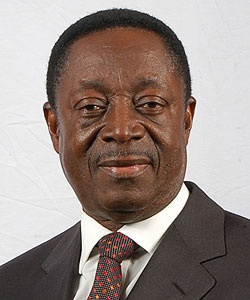
The Bank of Ghana (BOG) on Friday cautioned petty traders, market women and the general public to desist from dealing with unlicensed financial institutions especially that of micro-finance businesses.
The BOG warned that traders and all those who patronize unlicensed financial institutions do so at their own risk.
Mr. Yaw Gyima Larbi, Head of Micro Finance Unit of the BOG who gave the advice, raised concerns about the rate at which micro finance institutions were springing up in the country.
He was speaking at a public forum on the third national financial literacy week in Sunyani.
The forum was under the theme “financial literacy-creating wealth and financial stability”.
It was attended by more than 500 people from the tailors and dressmakers associations, credit unions, hair dressers and beauticians associations, micro finance institutions and Ghana Cooperative Unions Associations.
Mr. Larbi observed that the “unbridled and indiscriminate growth of financial institutions needs to be reined with the view to streamlining their operations and making them more relevant to the whole process of poverty reduction and growth”.
He disclosed that out of the 500 applications the BOG received from micro credit institutions for licensing, only 122 of them had been issued with provisional license to operate.
Mr. Larbi said the major factors accounting for the delay in issuing the licenses were the inability of operators to provide requisite information for processing their applications.
Mr. Larbi said although the presence of microfinance institutions was welcomed considering the enormous benefits they offer by providing financial services to the disadvantaged; for any system to function effectively and ultimately benefit society, it needed to be guided by laid down rules and regulations.
In a speech read for him, Mr. Kwabena Duffour, Minister of Finance and Economic Planning disclosed that the ministry, in collaboration with the Ghana Education Service, had developed detailed course content under ‘Personal Financial Education’ for Senior High Schools in the country.
With support from the German International Cooperation, through the Responsible Ghana Project, draft content for the teaching and learning materials had also been developed to equip students with adequate knowledge of basic financial issues.
Mr. Duffour explained that the financial sector remained one of the most important sectors of the Ghanaian economy, and the government’s policy towards the sector had recognized the far-reaching impact of having an efficient and stable financial system.
He expressed worry about the recent increase in fraud and abuse in the country’s financial sector.
Mr. Duffour pledged the government’s readiness and commitment to protect the public on the menace through strengthening surveillance by the banking Supervision Department of the Bank of Ghana.
Mr. Duffour said it was in the light of this that the government had instituted a lot of reforms in the financial sector to ensure financial deepening and intermediation.
Mr. Duffour said the various studies conducted into financial adult literacy in the country over years had been worrying; a contributory factor to the rise in fraud in the sector.
This, he explained was why Ghana’s Financial Sector Strategic Plan had established an annual National Financial Literacy Week to raise awareness on the range of financial products and services available to consumers to help them better understand and manage their personal finances.
Mr. Duffour said research had established that financial sector development was a necessary pre-requisite and fundamental pillar for sustained growth.
He noted that as the economy continued to expand, the range of financial services would increase and consumers would have more choices and flexibility in how they managed their financial matters.
The finance minister emphasized the importance to help consumers acquire the necessary and appropriate knowledge in order to make an informed financial decision.
Mr. Ernest Frimpong, an officer at the Marketing, Research and External Relations Department of the National Insurance Commission (NIC), disclosed that 44 registered insurance companies with 55 brokers were operating in the country.
He expressed concern about people’s knowledge of insurance, which he said was very limited and that explained why the NIC had partnered with the ministry of finance to organize the financial literacy week.
Mr. Frimpong advised the general public to also patronize insurance companies that were licensed.**